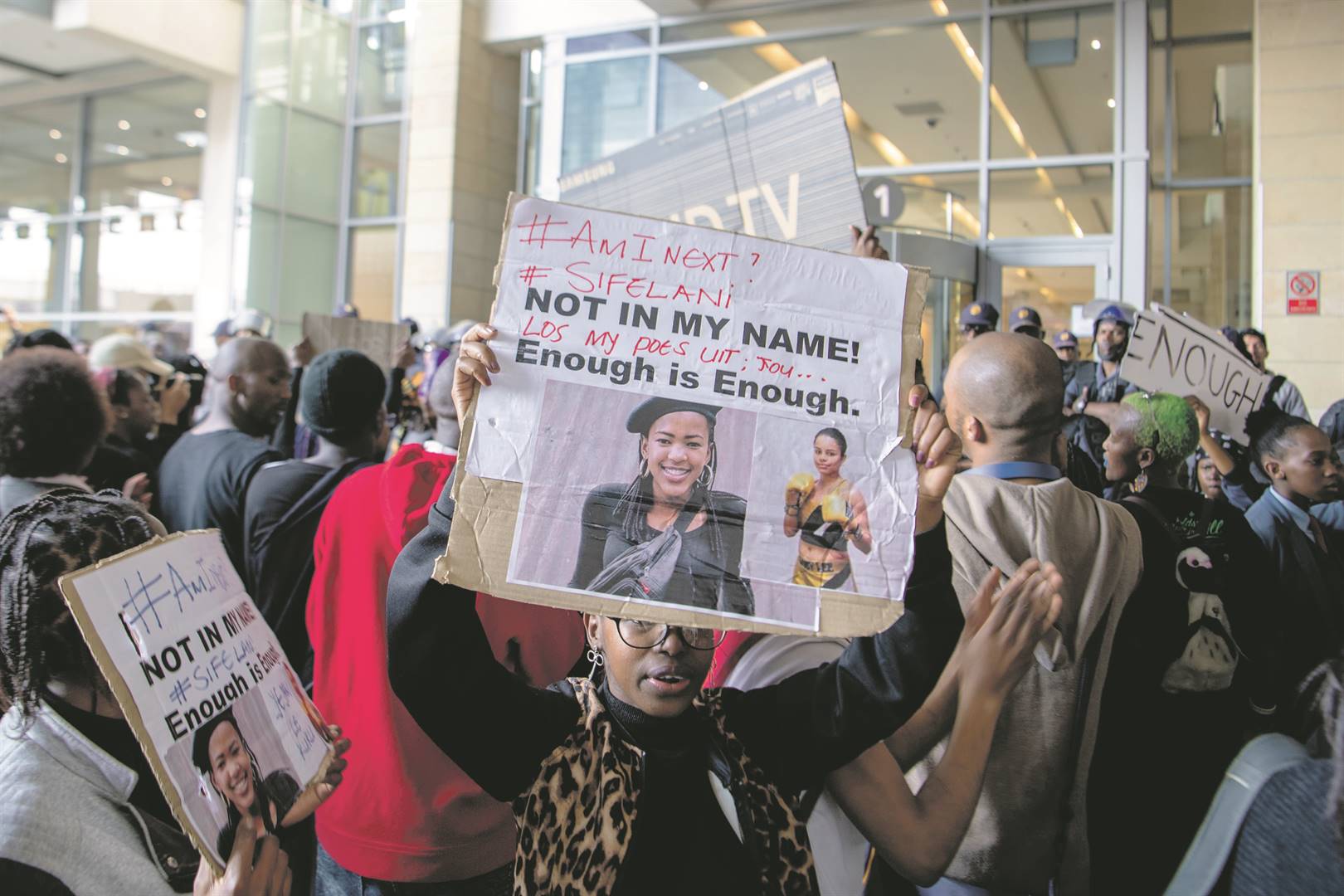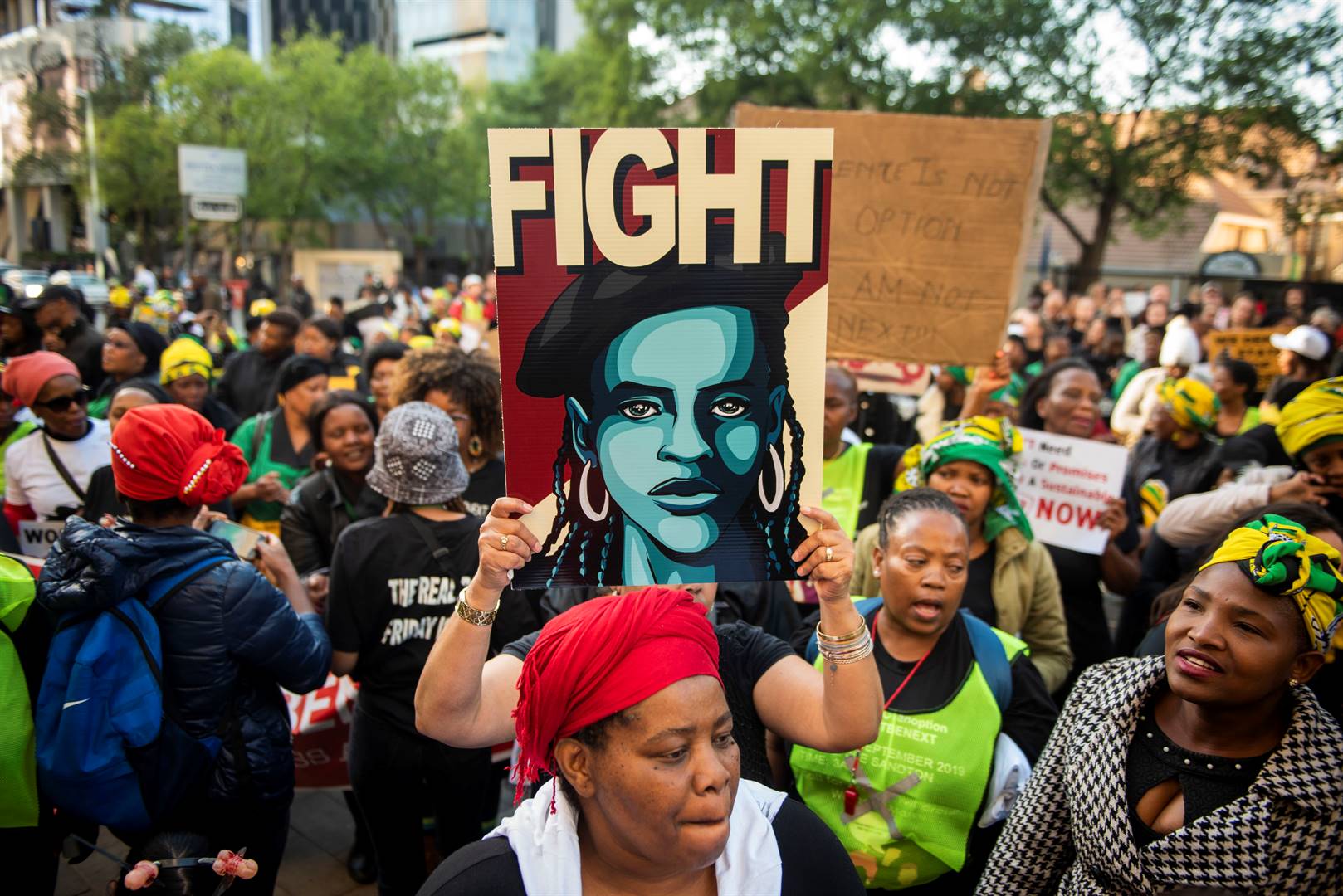
The lawsuit by Uyinene Mrwetyana’s family is a reminder of how as a country we move on too fast from tragic events, without justice for victims
South Africans experience many tragedies daily: murder, crime, horrific road accidents and high levels of femicide and gender-based violence.
We are generally a traumatised nation.
However, we are also a nation that tends to move on too quickly from one incident that captures our attention to the next.
We organise marches, shutdowns and, within a short time, we have either forgotten or moved on.
I believe this is probably why politicians do not deliver on the promises they make.
This is because they know how easily we forget and, as a result, they get away, sometimes literally, with murder.
Right now the world is on tenterhooks because of the Covid-19 coronavirus.
Countries are anxiously navigating this uncertainty as they fight to contain the virus and save citizens’ lives from the pandemic.
Meanwhile, most of us might have missed the announcement by the family of former University of Cape Town student Uyinene Mrwetyana that they are suing the SA Post Office for her murder.
She was killed by its employee, Luyanda Botha, at the Clareinch branch in Cape Town on August 24 last year.
They are suing the state because Botha, who was jailed for life after pleading guilty, was employed by the post office despite his criminal record which his bosses knew about.
He murdered Mrwetyana when she went to collect a parcel. He had made sure he was alone with her on that Saturday afternoon.
This month, I have been to the Southgate Mall post office twice – on a Saturday.
The second time I got there 15 minutes before it closed, with 10 people still inside.
The teller who attended to me, looked at my package and said that it was not properly sealed.
She demonstrated how, by putting her hand in the space I had left to write the name and address of the person to whom I was posting the parcel, anyone could open the parcel and steal the contents.
She advised that I go and buy more Sellotape and come back and reseal the box properly.
On my return, there were only two customers left. When the two women had been served and they left, I was the only one remaining.
The door was locked since no customers would be allowed to enter as the office was now closed.
Read: Violence against women should be equated with war
It was at this moment that my mind started wandering and I thought about Mrwetyana.
For a moment, I asked myself if I would have been comfortable and felt safe had the teller serving me been a man. I knew that I would not have been.
As the woman was measuring the box and preparing to weigh it, my eyes went around the small post office.
I was looking beyond the counter, at what seemed to be the manager’s office, which had tinted windows.
I realised that this was where the money was kept because the staff members went to that room whenever they had to fetch change.
There was a man I had seen earlier, from whom I had borrowed a pen to write the name and address on the box.
It appeared as if the two were the only employees left in the post office.
Looking at the scale again, I recalled that Mrwetyana’s killer had used a scale to bludgeon her small innocent frame to get her unconscious before he raped and strangled her.
I was overcome by a deep sense of trauma and sadness, despite making light conversation with the woman on the other side of the counter.
I was gently admonishing her for drinking a 2-litre bottle of Coca-Cola by herself, straight from the bottle.
I could not shake off the emotions evoked by the ordeal Mrwetyana must have experienced on that fateful day.
I thought about the unsuspecting innocence with which she had gone to the post office, not imagining even for a moment that she would be meeting her killer, and that she would be robbed of her young life by a heartless rapist and murderer.
I kept thinking, had I returned and found only the man in the post office, I would probably have dashed out of there and returned on another day.
This is the life that women in South Africa are daily subjected to. We do not feel safe anywhere, even in government institutions.
We no longer trust men in any environment. What is even sadder, is that we have been forced to see a potential rapist and killer in any man we come across.
It is the small things and situations that trigger painful memories of children, young women and the elderly who are raped and killed in our society.
After Mrwetyana’s death and Botha’s confession, it was revealed that two senior executives at the Clareinch post office had been suspended – the general manager of security and investigations as well as the acting executive of human capital management – presumably for having known for more than a year that the self-confessed killer was a convicted criminal.
But they ignored the intelligence report.
Botha was supposedly one of about 300 post office employees who had failed a vetting process the previous year “as they had been involved in crimes including theft, sexual harassment, domestic violence and assault”.
A SowetanLive report went further, indicating that “of the 300 flagged employees, the State Security Agency report further identified 174 employees who have criminal records”.
After this information was revealed, the Minister of Communications and Digital Technologies, Stella Ndabeni-Abrahams, was said to have “implored the post office board and management to intensify security measures at its branches and appropriately act against employees who have failed to adhere to internal human resources policies and protocols”.
The minister had, on the other hand, explained the terms of the collective bargaining agreement that was entered into with the unions, to “deviate from the traditional recruitment process [interviews, minimum requirements, vetting]” in converting casual employees to become permanent staff members.
It is supposedly through this loophole that Botha and the 300 other employees with criminal records were employed permanently, in compliance with section 198B of the Labour Relations Act, as they had served the post office for a number of years.
The two senior officials were put on precautionary suspensions, pending a determination following the post office’s internal human resources processes.
Perhaps we should now seek answers from Ndabeni-Abrahams on what the outcome of these investigations was.
We need to know what has since happened to the two suspended officials.
What has happened to the flagged employees with criminal records?
Are they still in the system, employed in various post offices across the country, or not?
We deserve this much as clients of the post offices, considering the fact that, as women, we are constantly feeling vulnerable and unsafe,when we access services at its branches.
We also deserve this feedback as the nation, in memory of and in seeking justice for Mrwetyana.
This is a collective memory which cannot be easily erased from our minds, lest another similar incident happens, and we are caught napping again.
May Uyinene Mrwetyana’s soul continue to rest in eternal peace.
Molatoli is director at Bamboo Seeds Communications
 | ||||||||||||||||||||||||||
Get in touchCity Press | ||||||||||||||||||||||||||
| ||||||||||||||||||||||||||
| Rise above the clutter | Choose your news | City Press in your inbox | ||||||||||||||||||||||||||
| City Press is an agenda-setting South African news brand that publishes across platforms. Its flagship print edition is distributed on a Sunday. |




 Publications
Publications
 Partners
Partners









